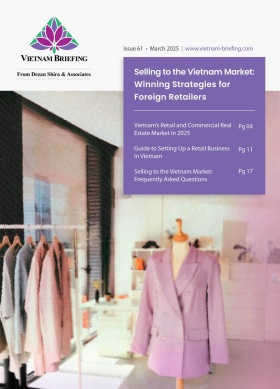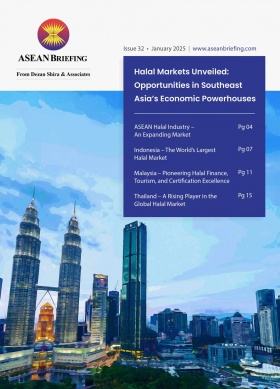Business Registration Certificates in Vietnam: A Guide for Foreign Investors
Vietnam has emerged as a prime investment destination in Southeast Asia, attracting foreign investors with its robust economic growth, competitive labor costs, and strategic location. However, navigating the country’s business registration process is crucial to ensuring legal compliance and smooth operations. A key component of this process is obtaining a Business Registration Certificate (BRC), a fundamental requirement for any legal entity operating in Vietnam.
Understanding the Business Registration Certificate
The Business Registration Certificate is an official document issued by the Department of Planning and Investment (DPI) that legally recognizes a company’s establishment in Vietnam. It serves as proof of registration and outlines key business details, including company name, address, business activities, and charter capital. For foreign investors, obtaining a BRC is an essential step in setting up a company and conducting business legally.
Why the BRC matters
A Business Registration Certificate is more than just a formal document; it serves as the foundation for legal operations in Vietnam. Without it, companies cannot legally sign contracts, hire employees, or conduct financial transactions.
Choosing the right business structure
Foreign investors in Vietnam can select from several business entity types, each with its own legal framework and operational requirements. Understanding these structures helps investors make informed decisions that align with their business goals.
- Limited Liability Company (LLC): The most common choice for foreign businesses due to its flexibility and limited liability for owners.
- Joint Stock Company (JSC): Suitable for larger businesses planning to issue shares and attract multiple shareholders.
- Partnership: A structure based on cooperation, often used in professional services.
- Branch Office: Allows foreign companies to conduct commercial activities in Vietnam while remaining legally attached to the parent company.
- Representative Office: Suitable for market research and liaison activities but restricted from direct commercial transactions.
Comparing business structures
|
Business Type |
Ownership |
Liability |
Allowed Activities |
|
LLC |
Single or multiple foreign investors |
Limited to investment capital |
Full business operations |
|
JSC |
Minimum 3 shareholders |
Limited to capital contribution |
Can issue shares, raise capital |
|
Partnership |
At least one general partner |
Unlimited for general partners |
Service-based industries |
|
Branch Office |
Foreign parent company |
Liable under the parent company |
Conducts commercial activities |
|
Representative Office |
Foreign parent company |
Not liable |
Market research, liaison only |
Preparing for business registration
Foreign investors must meet several pre-registration requirements before applying for a BRC. These preparatory steps are crucial for ensuring a smooth registration process.
- Investment registration certificate (IRC): Foreign investors must first obtain an IRC, which approves investment projects in Vietnam.
- Capital requirements: Some business sectors have minimum capital requirements that must be met before registration.
- Defining business scope: Certain industries restrict foreign ownership, requiring investors to carefully define their business activities.
- Location and licensing approvals: Business premises must comply with zoning regulations, and some industries may require additional government approvals.
Steps to obtain a Business Registration Certificate
The process of obtaining a BRC involves several key steps, requiring careful attention to documentation and compliance.
- Apply: Investors must submit a completed application to the Department of Planning and Investment, including required documents such as company charter, shareholder details, and investment approvals.
- Processing and review: Authorities review the application to ensure compliance with Vietnam’s legal framework.
- Issuance of BRC: Once approved, the BRC is issued, allowing the company to proceed with post-registration compliance.
- Associated costs and timeline: The registration process typically takes one to two weeks, depending on the complexity of the business structure. Fees vary based on company type and capital size.
- Avoiding common pitfalls: Incomplete documentation, misalignment with investment policies, and incorrect business scopes are common reasons for delays in obtaining a BRC.
Compliance requirements after registration
Obtaining a BRC is just the beginning. Companies must adhere to several compliance requirements to maintain legal status in Vietnam.
- Tax registration: Businesses must register for tax identification numbers and comply with corporate tax obligations.
- Labor and social insurance: Hiring employees requires registration with Vietnam’s labor authorities and participation in social insurance programs.
- Business license tax: All registered businesses must pay an annual business license tax based on their registered capital.
- Annual reporting and audits: Companies must submit financial statements and annual reports to regulatory bodies.
Considerations for foreign investors
Foreign investors looking to establish a business in Vietnam must navigate sector-specific regulations that influence their ability to operate in certain industries.
These regulations may include foreign ownership limitations, conditional business sectors requiring additional approvals, and compliance with Vietnam’s commitments under international trade agreements.
Understanding the impact of trade agreements
Vietnam’s participation in free trade agreements such as the CPTPP and EVFTA provides foreign investors with enhanced market access and reduced tariffs. However, these agreements also come with regulatory compliance requirements that businesses must be aware of before entering the market.
About Us
ASEAN Briefing is one of five regional publications under the Asia Briefing brand. It is supported by Dezan Shira & Associates, a pan-Asia, multi-disciplinary professional services firm that assists foreign investors throughout Asia, including through offices in Jakarta, Indonesia; Singapore; Hanoi, Ho Chi Minh City, and Da Nang in Vietnam; besides our practices in China, Hong Kong SAR, India, Italy, Germany, and USA. We also have partner firms in Malaysia, Bangladesh, the Philippines, Thailand, and Australia.
Please contact us at asean@dezshira.com or visit our website at www.dezshira.com and for a complimentary subscription to ASEAN Briefing’s content products, please click here.







